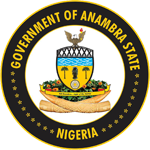GOVERNOR SOLUDO’S STANCE ON ANAMBRA NEW LOCAL GOVERNMENT LAWS

By Obiageli Nwankwo :
Anambra State Government has enacted two new laws aimed at reforming local governance: the Anambra State Economic Planning and Development Law, 2024, and the Anambra State Local Government Administration Law, 2024.
These laws, signed by Gov. Chukwuma Soludo, are intended to increase transparency, enhance collaboration between state and local governments, and ensure the efficient management of local government resources.
The new legislation has stirred debate, particularly regarding their alignment with a recent Supreme Court ruling on local government autonomy.
However, Gov. Soludo clarified that these laws are consistent with the Nigerian Constitution and that they seek to improve governance at the local level, stressing that the reforms are not about undermining local government autonomy but about ensuring proper management of public funds and services.
He pointed out that Nigeria’s Constitution do not treat local governments as completely autonomous units. He explained that, under Section 7 of the 1999 Constitution, state governments have the power to establish and structure local governments. Therefore, Anambra’s new laws aimed to provide a structured approach to managing local government funds and services, ensuring they align with both the Constitution and the Supreme Court ruling.
Soludo emphasized that the debate over local government autonomy is still unsettled in Nigeria’s federal system, noting that the APC’s 2018 restructuring committee had proposed removing local governments from the Constitution, allowing states to decide how to manage them.
The recent Supreme Court ruling, which mandated the direct transfer of funds to local governments, has been viewed as a step toward more financial independence for local councils.
However, Gov. Soludo sees the recent ruling by the Supreme Court as an opportunity to introduce greater transparency in how these funds are managed. He argued that while local governments should have control over their finances, there must be oversight and collaboration with the state to ensure effective service delivery.
Soludo pointed out that the ruling provides a chance to restructure the Joint State-Local Government Accounts system to ensure better coordination. He emphasized that if local governments were left to manage their finances independently without proper oversight, it could lead to financial mismanagement and failure to provide critical services like primary education and healthcare.
According to him, One of the central elements of the new laws is the creation of the Anambra State Economic Planning Board, which will include all local government chairpersons. This board will be responsible for deciding how local government revenues are allocated for essential services such as salaries, education, healthcare, and pensions.
Gov. Soludo explained that this collaborative approach ensures consistency across local governments. Without it, some local governments might struggle to meet basic obligations like paying teachers or providing healthcare. By pooling resources, the state can ensure that all local governments have the necessary funds to fulfill their responsibilities.
Mr Governor also addressed concerns raised by local government workers and unions about potential issues with local government autonomy. The new laws aim to protect workers, including teachers and healthcare workers, by ensuring their salaries and pensions are consistently paid.
He highlighted that when he took office, he inherited four years of unpaid gratuities to local government workers.
His administration has since restructured the system and brought it back to financial stability. Anambra is now ranked first among Nigerian states for fiscal transparency, a testament to the government’s focus on accountability.
Gov. Soludo emphasized that these reforms are designed to build lasting institutions that will continue to function effectively after his administration. The laws are intended to safeguard the improvements made in education, healthcare, and local government workers welfare.
With these reforms, Anambra is leading the way in finding practical solutions to the challenges of local governance in Nigeria. Soludo called for similar reforms across other states, stressing that no tier of government can function effectively in isolation. Collaboration between state and local governments is essential for achieving sustainable development and improving the lives of citizens.
He posited that the new laws represent a progressive step in Nigeria’s evolving federalism, balancing local government autonomy with the need for collaboration and accountability, while stating that his administration aimed to ensure that local governments in Anambra are well-managed, transparent, and able to meet their obligations to the people.
*Obiageli is of the Ministry of Information, Anambra State

0 Comments